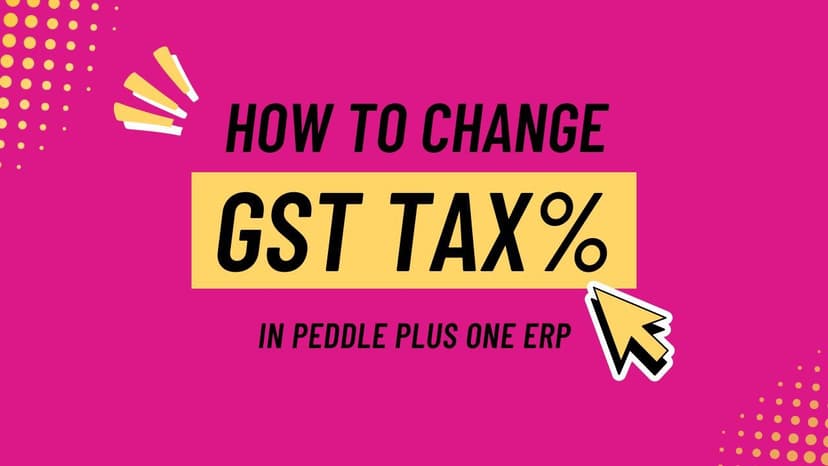
• September 15, 2025
The GST Council has announced significant changes aimed at making GST simpler and reducing confusion for businesses.
Here’s a quick, practical breakdown for retailers, wholesalers, and D2C brands — plus how Peddle Plus One ERP makes compliance effortless.
New GST Slabs (Quick View)
5% GST
- Daily essentials: coffee, milk, plant-based drinks
- Garments & footwear below ₹2,500
- Personal care, packaged foods
18% GST
- Most standard products
- Electronics, home appliances
- Premium garments & footwear ₹2,500 and above
40% GST
- Sugary, fizzy, caffeinated drinks
- Luxury cars & select sin goods
Still Under Cess
- Tobacco, pan masala, cigarettes
- GST + Compensation Cess (no simplification)
GST on Garments – Simple Rules for Shopkeepers
Garments below ₹2,500 → 5% GST
Example: A T-shirt priced at ₹2,499 will attract only 5% GST.
Benefit: Mass-market apparel stays affordable; even branded apparel becomes cheaper for consumers.
Garments ₹2,500 and above → 18% GST
Example: A branded kurta priced at ₹2,500 (or above) will be billed at 18%.
Benefit: Premium clothing follows standard tax; clear distinction between price tiers.
GST on Footwear – No More Confusion
Footwear below ₹2,500 → 5% GST
Example: A school shoe pair for ₹2,499 = only 5% GST.
Benefit: Branded footwear stays cheaper for customers.
Footwear ₹2,500 and above → 18% GST
Example: A sports shoe priced at ₹2,500 will carry 18% GST.
Benefit: Premium footwear clearly falls under standard slab.
GST on Beverages – A Big Change
Earlier: Sugary/fizzy beverages like cola or energy drinks → 28% GST + Cess (complex).
Now: Flat 40% GST.
Example: A ₹100 cola may now cost around ₹110+ after tax.
Impact: Sugary/fizzy drinks get costlier.
On the other hand: Coffee, dairy drinks, soya milk → 5% GST.
Impact: Healthier drinks get cheaper and more attractive for consumers.
Tobacco — Still Complex
Tobacco, cigarettes, and pan masala remain under GST + Compensation Cess. There’s no simplification here; compliance remains more involved.
How Peddle Plus One ERP Helps You Manage GST Easily
- Auto Tax Updates: No manual math. Update GST by item, by category, or by product group in bulk.
- Built-in Garments & Footwear Rules: Automatically separates items below/above ₹2,500 via Product Category master rules.
- Cess vs GST Handling: Differentiates beverages (40% GST) from tobacco (GST + Cess).
- GST Filing Made Easy: Automated reports for faster returns and lower penalty risk.
- Multi-channel Selling: Consistent tax rules across POS, online store, and wholesale billing.
Takeaway
- Retailers: Cheaper garments & footwear under ₹2,500 can boost volume sales.
- D2C Brands: Healthier beverages and essentials become more attractive at lower GST.
- Wholesalers: Simpler slabs → easier bulk billing and faster compliance.
With an ERP, you avoid miscalculations or slab mistakes — the system handles it while you focus on sales and growth.
In short: GST 2025 makes life easier. With ERP, it becomes even simpler.